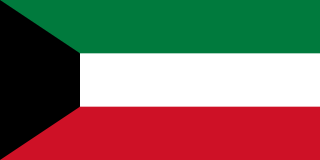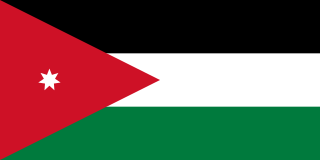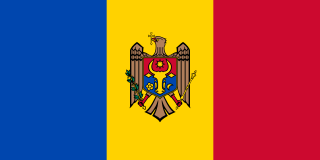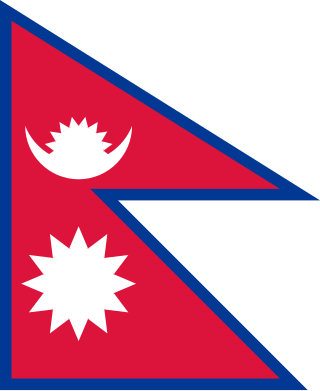
The Corruption Perceptions Index (CPI) is an index that ranks countries "by their perceived levels of public sector corruption, as determined by expert assessments and opinion surveys." The CPI generally defines corruption as an "abuse of entrusted power for private gain". The index is published annually by the non-governmental organisation Transparency International since 1995.

In Transparency International's 2023 Corruption Perceptions Index, which scored 180 countries on a scale from 0 to 100, Bahrain scored 42. When ranked by score, Bahrain ranked 76th among the 180 countries in the Index, where the country ranked first is perceived to have the most honest public sector. For comparison with worldwide scores, the best score was 90, the average score was 43, and the worst score was 11. For comparison with regional scores, the average score among Middle Eastern and North African countries was 34. The highest score among Middle Eastern and North African countries was 68 and the lowest score was 13.

Corruption laws exist in Egypt to criminalize extortion, embezzlement and bribery in business, but they are poorly enforced.

Examples of areas where Cambodians encounter corrupt practices in their everyday lives include obtaining medical services, dealing with alleged traffic violations, and pursuing fair court verdicts. Companies are urged to be aware when dealing with extensive red tape when obtaining licenses and permits, especially construction related permits, and that the demand for and supply of bribes are commonplace in this process. The 2010 Anti-Corruption Law provides no protection to whistleblowers, and whistleblowers can be jailed for up to 6 months if they report corruption that cannot be proven.

Corruption can take many forms, and can distort how public policy is made or implemented. This article discusses the responsibilities of the various agencies involved in combating corruption in Australia. Australia became a signatory to the United Nations Convention against Corruption in 2005. While Australia is a wealthy democracy, over the decade since 2012, Australia's ranking in the Corruption Perceptions Index from Transparency International has slipped from 7th place in 2012 to 14th in 2023, where the country ranked first is perceived to have the most honest public sector. Additionally, there is a public perception that corruption in Australia is increasing. All states have broad-based anti-corruption agencies, and a national anti-corruption commission has been operational since July 2023.

According to Transparency International's Global Corruption Barometer 2013, corruption is a large concern in the public sector as more than half of the surveyed households consider Parliament, police, public officials, and particularly the judiciary and political parties very corrupt.

In 2013, a report by Transparency International revealed that political parties, Parliament, the judiciary and the military are the most corrupt institutions in Portugal. Transparency International's 2022 Corruption Perceptions Index ranks the country in 33rd place out of 180 countries in the Index.

Corruption in the Netherlands is minimal in all major areas—judiciary, police, business, politics—as the country is considered one of the least corrupt within the European Union.

Both grand and petty corruption are serious problems in Tanzania yet various comprehensive laws are in place to prevent corruption. It is largely due to a weak internal control and low or non-compliance with anti-corruption regulations within different government agencies. For instance, public procurement, taxation, and customs service are areas that are prone to corruption.

Petty and grand corruption is a growing problem within Morocco. A leaked report by a US diplomat stated in 2009 that corruption had become much more institutionalized under King Mohammed VI, and that the royal family had been using public institutions to coerce and solicit bribes.

Corruption in Kuwait is a problem resulting in political tensions in society.

Corruption in Jordan is a social and economic issue.

The government in Moldova has in recent years taken several steps to fight corruption, including law enforcement and institutional setups. The prosecution of officials who are involved in corruption has also increased in recent years. However, businesses consider corruption a serious problem for doing business, and the business environment continues to be one of the most challenging in the region.

On Transparency International's 2023 Corruption Perceptions Index, Senegal scored 43 on a scale from 0 to 100. When ranked by score, Senegal ranked 70th among the 180 countries in the Index, where the country ranked first is perceived to have the most honest public sector. For comparison with worldwide scores, Senegal's score was also the average score in 2023; the best score was 90 and the worst score was 11. For comparison with regional scores, the average score among sub-Saharan African countries was 33. The highest score in sub-Saharan Africa was 71 and the lowest score was 11.

There are several sectors in Ethiopia where businesses are particularly vulnerable to corruption. Land distribution and administration is a sector where corruption is institutionalized, and facilitation payments as well as bribes are often demanded from businesses when they deal with land-related issues.

Corruption levels are perceived to be high by surveyed residents of Serbia, and public trust in key institutions remains low.

Despite several steps taken by the previous government in order to fight corruption in Zambia, there has not been a dramatic improvement in the public perception of anti-corruption efforts over the past years. Corruption remains pervasive in the country, yet in April 2014 the Business Anti-Corruption Portal reported that the situation in Zambia is relatively better than that of other countries in the region.

Corruption in Vietnam is pervasive and widespread, due to weak legal infrastructure, financial unpredictability, and conflicting and negative bureaucratic decision-making. Surveys from 2015 revealed that while petty corruption decreased slightly throughout the country, high-level corruption significantly increased as a means of abuse of political power in Vietnam. Corruption is a very significant problem in Vietnam, impacting all aspects of administration, education and law enforcement.

There is evidence that corruption is a legitimate problem in Israeli politics and many investigations have taken place into allegations of influence peddling and bribery.

Corruption in Nepal is widespread and extends to every sector from the government to the judiciary, police, health services, and education.





















